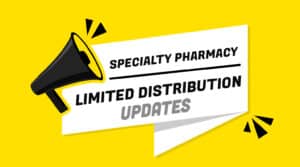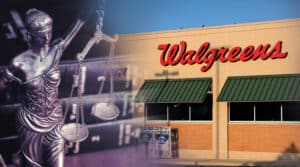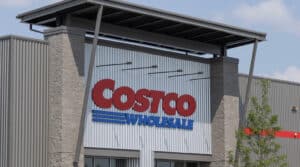The FDA has just approved an oral suspension therapy, Relyvrio from Amylyx Pharmaceuticals, for ALS (amyotrophic lateral sclerosis or Lou Gehrig’s disease). Relyvrio joins a surprisingly competitive market for this rare condition. Five drugs were previously approved to treat ALS and its symptoms and include Radicava, Rilutek, Tiglutik, Exservan, and Nuedexta.
What is noteworthy about Relyvrio is that it is a combo therapy created by combining two, long available ingredients. The first, taurursodiol, is an over-the-counter supplement sometimes used to regulate liver enzymes. The other component is sodium phenylbutyrate, a prescription medication for a pediatric urea disorder.
With fewer than 25,000 or so eligible patients in the US, Relyvrio will need to slug it out to gain market share. However, Relyvrio was approved with no black box warnings and a history of off label utilization within the ALS population. The FDA must have felt comfortable as it granted approval well before clinical trials were completed citing the demand for incremental options for patient relief.
Relyvrio will hit the streets at a cool $158,000 annually….. slightly less costly than its nearest competitor, Radicava. Given the rare status of the disease it is expected that Relyvrio will launch through limited distribution.
CLICK HERE to access prescribing information
————————————————————————————————————————
The new drug, marketed as Relyvrio, has a list price of $158,000 a year.
By Pam Belluck
Sept. 30, 2022
A new medication for A.L.S., the devastating neurological disorder that causes paralysis and death, will have a list price of $158,000 a year, its manufacturer disclosed Friday.
The treatment, to be marketed as Relyvrio, is a combination of two existing drugs and will be available to patients in the United States in about four to six weeks, according to officials of the company, Amylyx Pharmaceuticals.
Relyvrio was approved by the Food and Drug Administration on Thursday, even though the agency’s analysis concluded there was not yet sufficient evidence that the medication could help patients live longer or slow the rate at which they lose functions like muscle control, speaking or breathing without assistance.
The F.D.A. decided to greenlight the drug instead of waiting until 2024 for results of a large clinical trial partly because the treatment is considered to be safe. The agency said that although the evidence of effectiveness was uncertain, “given the serious and life-threatening nature of A.L.S. and the substantial unmet need, this level of uncertainty is acceptable in this instance.”
A.L.S., or amyotrophic lateral sclerosis — also called Lou Gehrig’s disease — often strikes patients in the prime of life and frequently causes death within two to five years. It is diagnosed in about 6,000 people worldwide each year, and Amylyx estimates that there are about 29,000 people living with the disease in the United States.
The Fight Against A.L.S.
The illness, also called Lou Gehrig’s disease, robs people of their ability to move, speak, eat and ultimately breathe.
Relyvrio: The experimental treatment for A.L.S. conceived a decade ago by two college students received the Food and Drug Administration’s approval, despite questions about its effectiveness.
A Runner’s Mission: After surpassing the average life expectancy for people with the disease, Andrea Peet decided to race a new kind of clock: 50 marathons in 50 states.
Brain Implant: A man who is fully paralyzed by A.L.S. was able to communicate using only his thoughts.
Rethinking Care: In 2017, Brian Wallach was diagnosed with A.L.S. Now, his startup aims to help other patients make the most of their time.
Amylyx officials predicted that most patients would pay little or nothing for the treatment because the company expects insurers, both private and public, to cover it. Amylyx plans to provide it free to uninsured patients experiencing financial hardship.
Still, the list price is much higher than that recommended by the Institute for Clinical and Economic Review, a nonprofit organization that evaluates the value of medicines. In a statement, the group’s chief medical officer, Dr. David Rind, said that while “there are clear benefits to patients with a rapidly fatal disease to have early access to a safe therapy,” his organization had concluded that “an annual price of $9,100 to $30,700 would be reasonable if the therapy actually works.”
Dr. Rind added that “while awaiting proof, we believe that patients would benefit from a price closer to the price of production of Relyvrio rather than a price more than five times higher than the top of a value-based range.”
During an investor conference call on Friday, Justin Klee, a founder of Amylyx, said the price was chosen after meeting with insurers, patients, doctors and others. He said the company considered what would allow it to “invest in new treatments so that A.L.S. first becomes a manageable chronic condition and ultimately is cured,” and added that the price “allows Amylyx to sustain programs to help people who can benefit from Relyvrio access it.”
Her Face Started Drooping. What Was Wrong?
The F.D.A. has approved only two other A.L.S. medications. Riluzole, a tablet approved in 1995, can extend survival by several months and generally costs significantly less than $10,000 a year. Edaravone, marketed as Radicava, can slow symptom progression by about 33 percent. Radicava, which was originally approved in 2017 as an intravenous infusion, was approved this year in an oral form that carries a list price of $171,000 a year. Amylyx officials said they expected that, as in the company’s clinical trials, many patients would take Relyvrio, a powder that is mixed with water, along with one or both of the other medications.
Relyvrio was conceived by the founders of Amylyx, Mr. Klee and Joshua Cohen, when they were undergraduate students at Brown University less than a decade ago. They proposed that combining taurursodiol, an over-the-counter supplement sometimes used to regulate liver enzymes, and sodium phenylbutyrate, a prescription medication for a pediatric urea disorder, could protect neurons in the brain from damage in diseases like A.L.S. by preventing dysfunction of two structures in cells: mitochondria and the endoplasmic reticulum.
In an interview, Mr. Klee said the company expected that private insurers would cover the drug with no co-payments for patients, and he said that Amylyx would work to make it affordable for people on Medicare or Medicaid and provide it free to those without insurance who are financially struggling. Mr. Klee noted that patients had been obtaining the ingredients on their own for some time, buying the taurursodiol supplement from Amazon and paying up to $11,000 a month for the sodium phenylbutyrate.
“Now that our product is approved, we have to be laser-focused on making sure that people can access it,” Mr. Klee said.
Relyvrio’s clinical trials included patients who developed symptoms of A.L.S. within 18 months before the trial and were affected in at least three body regions, which is generally a sign of fast-progressing disease. The F.D.A.’s approval did not restrict which patients could use the medication. Mr. Cohen said in an interview that Amylyx didn’t have projections of how many would.
“There are patients who are just receiving the diagnosis today, and there are patients who are making end-of-life decisions today, and I think that people in different circumstances are going to make very different treatment decisions,” he said.
Amylyx has also conducted a small trial of Relyvrio in Alzheimer’s patients, and Mr. Cohen discussed plans to test it for other neurodevelopmental disorders.






